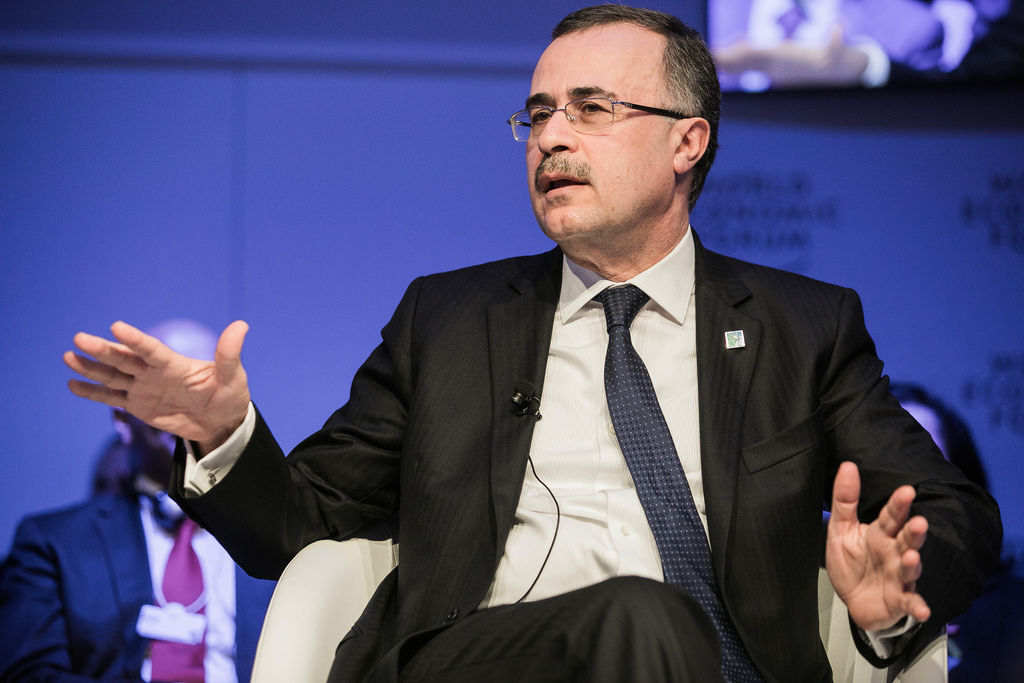This material belongs to: Financial Times.
Chief Amin Nasser praises efforts to root out graft at the top of Saudi Arabia.
Saudi Arabia’s sweeping anti-corruption purge should be viewed “very positively” by potential investors in Saudi Aramco as a sign the kingdom is committed to economic reform, according to the chief executive of the state energy giant.
As the world’s biggest oil producer prepares to sell shares to the public next year in what has been billed as the biggest initial public offering in history, Amin Nasser said investors should “appreciate” efforts to root out graft at the top of Saudi Arabia’s society.
“We support and welcome all the measures taken by the government to eradicate any type of corruption,” he said in an interview. “As an investor you would like to go to a climate where you don’t see any type of corruption whatsoever. So, they should look at it very positively.”
His comments come weeks after an anti-corruption probe led by the powerful crown prince Mohammed bin Salman that brought the arrest of more than 200 businessmen, princes and technocrats on allegations of “systematic corruption” totalling more than $100bn.
Many foreign observers believe the kingdom has launched a campaign against established business leaders, which could accelerate the capital flight that was already under way because of an economic downturn and regional geopolitical upheaval.
The purge has also removed opponents and rivals of Prince Mohammed, including his relatives, spurring worries about stability in the kingdom, which helped to send oil prices to the highest since 2015.
But Mr Nasser said “certain individuals” had been “taken for obvious reasons” and argued that the clampdown was in line with the anti-corruption policy set out in Prince Mohammed’s Vision 2030 blueprint for reforming Saudi Arabia’s economy.
“The crown prince talked about it, that nobody would be spared; princes, ministers, whoever,” Mr Nasser said. “Any investors going anywhere, would want to see these measures taken. If you are saying ‘I am fighting corruption and making sure that there is zero tolerance for any type of corruption’, this is something good.”
Saudi Aramco’s top leadership has also been caught up in the crackdown with the arrest of one of its board members, the former finance minister Ibrahim al-Assaf.
The company’s governance faces scrutiny from potential investors ahead of the planned IPO, which Riyadh believes could value the oil producer at $2tn, making it the largest flotation ever.
In the UK, critics have accused regulators of attempting to bend rules to accommodate Saudi Aramco on the London Stock Exchange, which is locked in a battle with New York and others to host the IPO.
Responding to those who have questioned the company’s governance, Mr Nasser said: “I can see that some people do not know Aramco.”
The company’s governance was “excellent” and “at par” with international peers, he added. “Whatever is required of a listed company in terms of board configuration and numbers we will meet it.”
Officials in Saudi Arabia are considering several international stock exchanges — from London and New York to Hong Kong and Tokyo — but they are also exploring other options aside from an overseas listing. Officials have recently said they could opt for a private sale to strategic investors alongside a listing on Saudi Arabia’s domestic Tadawul exchange instead.
 info@anticorr.media
info@anticorr.media

